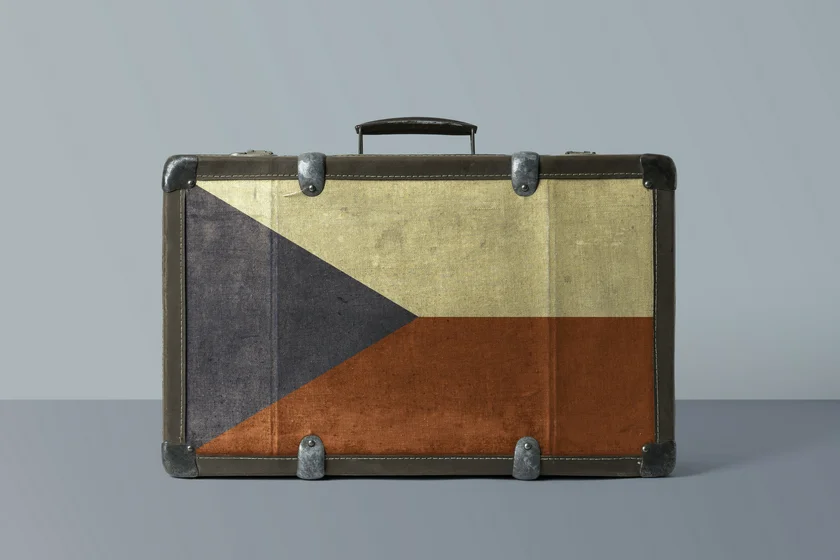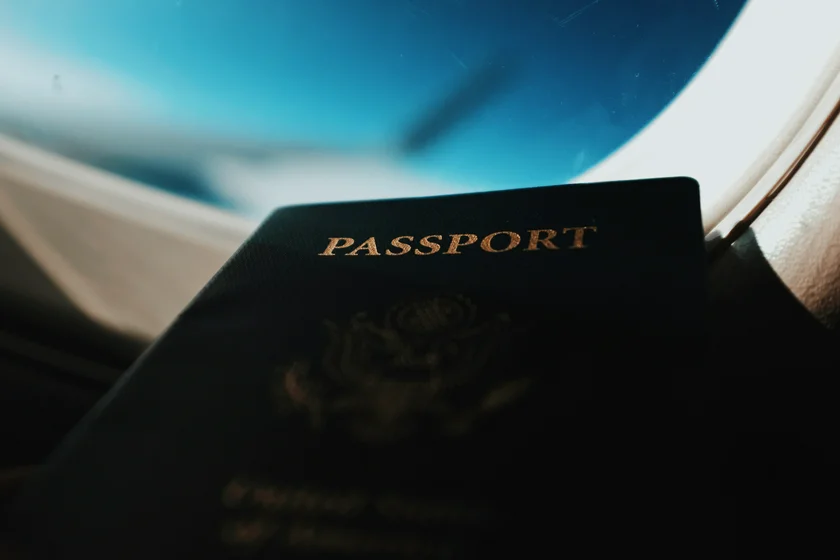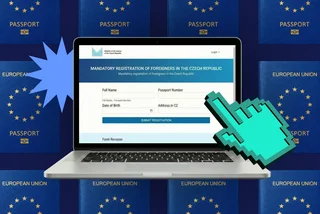Despite Covid, the Czech capital still remains an attractive place to call home. In fact, it has once again ranked on the Insider Survey among the top 20 places (no. 15 out of 59) to live as an expat, scoring high in the areas of work-life, quality of life, and cost of living.
While the Covid epidemic has complicated relocations it hasn’t made them impossible. We asked Jan Kalina, a relocation consultant from Move to Prague for his advice on how to make the process as stress-free as possible.
Current complications
While Covid has shuttered a number of embassies around the world, prior to the outbreak, Kalina says that visa processes were already getting more complicated due to newly introduced restrictions and changes to immigration policy. He says that the first step for anyone considering a move to the Czech Republic has to be establishing a clear purpose of stay.
As we all could see in 2020, rules, economies, moods, and much more can change pretty swiftly," says Kalina. "Knowing exactly when you want to move here and for how long you want to stay is one of the most important factors to consider when moving to Prague," he adds.
He also notes that while the moving process will be different for EU citizens and non-EU citizens some advice applies to everyone.
"Obviously, the more you know about Prague and the Czech Republic before you move here, the easier the adaptation will be for you," said Kalina. "Planning is foremost among those rules and it's really important to stick to a timeline."
Kalina, who has been helping people relocate to Prague for ten years says, "We see a huge difference between people who come prepared and those who don’t." These are his tips for the first steps to take if you’re considering relocating to Prague as well as an important timeline for what to do when:
Step 1: Determine the purpose of your stay
This is specifically important for non-EU citizens since there are different types of visas (with different processes and required documents) for students, employees, business owners, etc. This is important for EU citizens as well who will want to take a different approach to a move depending on whether they intend to find a job, retire, etc.
Purposes of stay
- Business visa - Suitable for freelancers on a Živnostenský list such as business owners or English teachers. You must prove the connection of your business to the Czech Republic (an interview is part of the application process). Read more here.
- Employment - For those who have a future employer who has agreed to support their visa process, allowing you to obtain an employee card or a blue card. Read more here.
- Student - For students already enrolled in a university program in the Czech Republic; the process includes an interview with the MOI.
- Family reunification - Meant for family members of the main applicant; say there is a family from the U.S., two adults and two kids, one of the parents gets a job offer in the Czech Republic and gets the employee card, then the rest of the family can follow them under the family reunification visa. Read more here.
- Family members of EU citizens - Family members of an EU citizen can be the spouse of an EU citizen or even a partner of an EU citizen living in Prague. Read more here.
- Other - You can apply for the "other" purpose of stay if you do not fall under any other category, you just need to convince the MOI that your reason to stay is good enough (e.g. private schools, language classes, etc.)
2. "Czech" your finances
For most visa types, you need to show that you have enough money in your bank account. What exactly is “enough”? For students and families, this usually means between CZK 92,000; for a business visa, you should be able to prove that you have CZK 125,000 CZK in savings.
When discussing finances as relates to relocating, it's important to mention that besides having enough in your bank accounts for the visa process, you'll also need to pay for things like translations, notarizations, traveling to a Czech Embassy to submit your visa application, payment for relocation agency services (if you use one), administrative fees for authorities, deposits for their flat, real estate commission, first months rent, a phone and internet plan. You should plan to have enough to cover these expenses.
3. Apply for your visa from your home country
Visas applications take a long time; the process can't be done in a couple of days or weeks, the standard approval time for most visas is 60-120-plus days. You need to factor in up to a month or two to prepare the documents so it's ideal to work on everything while you are still in your home country and not when you are 45 days into your 90 days allowance in the Schengen Zone.
Because there are many things people cannot know if they try to deal with their visas on their own (i.e. that the validity of your lease agreement determines the validity of your visa, etc.) hire someone to help can prove vital.
From legalities to culture, everything is sure to work a bit differently in the Czech Republic than in whatever country you're from, and trying to navigate it on your own can be more costly than hiring someone to help. Even a short consultation about how visas and taxes work or how to find a flat can make your start in Prague much easier even before you set foot in the country."
4. Get your documents in order
What are the main documents you should make sure to have before you leave your home country? No matter what type of stay you are applying for everyone will need a criminal check from the country of their origin and as well as from all the countries where they've lived for longer than 6 months in the last 3 years.
All documents they bring must be either apostilled or superlegalized depending on the country they come from. Some countries have an agreement with the Czech Republic about recognizing each others documents so documents from such countries do not need further legalization and are fine as issued. All the documents you want to use for your visa process must be then officially translated into Czech
- Business visa - you might also need your TEFL certificate or a diploma.
- Employee card - you'll need to have your diplomas with you (high school or university depending on the position you apply for).
- Student visa - you'll need your diploma plus transcript.
- Family reunification - marriage certificates of spouses and birth certificates of chilren are needed.
5. Start learning Czech and familiarizing yourself with Czech culture
Not everyone in the Czech Republic speaks English, especially if you move somewhere outside of Prague. Knowing at least a couple of phrases will open many doors and hearts for you and will make your start much easier, says Kalina. Getting started with learning the Czech language can be as easy as downloading an app like DuoLingo or taking lessons online; a number of Czech language schools have transitioned to online classrooms during the pandemic and learning Czech remotely is easier than ever before.
Incomers should also note that an integration course is now required for foreigners of non-EU countries with long-term or permanent residence which means you'll have to take a four-hour course about Czech customs and habits. A language exam is only required for a permanent residence permit which you can apply for after five years of living here.
Here is Move to Prague's month-by-month breakdown of what you should do leading up to your relocation to the Czech Republic.
Moving timeline
12 months to 6 months before leaving
Read about the history of the Czech Republic to get a better understanding of the culture and mentality, study Prague public transport and neighborhoods, etc. Join local Facebook groups devoted to foreigners. All of this will make the transition easier for you. Now is also the time to consider a consultation with experts in the areas that concern you the most (i.e. visa-related, accommodation-related, tax-related, etc.). "A lot can change in 6-12 months but the general rules will most likely stay the same. And even if not, you will understand the system and the changes more," advises Kalina.
6 months to 1 month before leaving
Start taking the first concrete steps within this time frame – research companies you want to hire to help you, do consultations with them to know what you need to bring with you, what documents to prepare, what processes to follow and set up clear timelines. Book your temporary accommodation. What you do/not do during this time will determine how easy/complicated those first weeks/months in Prague will be for you.
1 month before moving
No time left to waste now – schedule, schedule, schedule. Schedule flat viewings, schedule appointments with your visa advisers, schedule appointments in banks to open a Czech bank account. This is the time when you need to get things done. You did your research 12-6 months ago, you got concrete information about what needs to be done, when and how 6-1 month ago, now there's nothing left to do but follow through.
This article was written in association with Move To Prague relocation services. From assisting with complete relocation services to translations, insurances, apartment-finding, and more Move to Prague has helped expats make a smooth transition to Prague since 2012. To read more about our partner content policies see here.












 Reading time: 7 minutes
Reading time: 7 minutes 
























